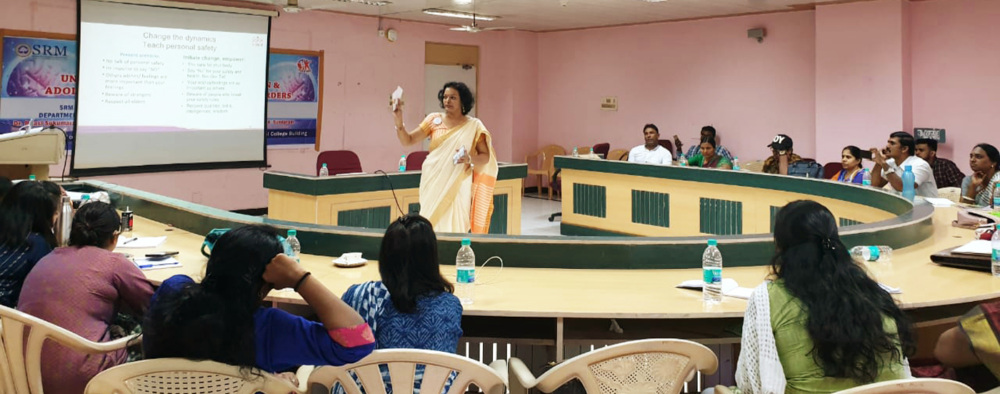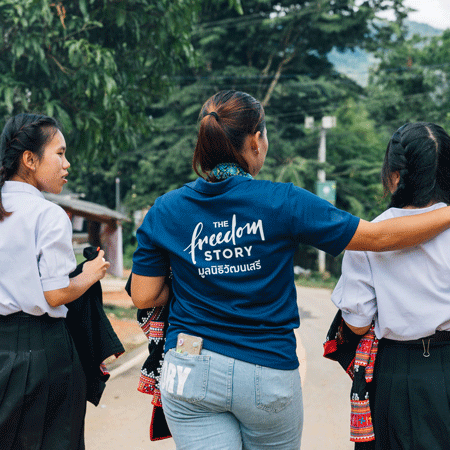
Segurança e bem-estar
Segurança e bem-estar
Este artigo foi publicado originalmente por Globo das meninas.
Envolver alguém é abraçá-lo e cercá-lo de cuidado até que ele se sinta seguro. Enfold Índia faz exatamente isso – se esforça para criar um ambiente seguro para crianças, apoia crianças afetadas pela violência sexual e promove o auto-empoderamento entre crianças e adultos.
A violência sexual e de género ultrapassa as fronteiras sociais e económicas e é uma das violações mais frequentes dos direitos humanos em todo o mundo. A Índia viu algum progresso nos últimos tempos, incluindo a promulgação da Lei de Proteção de Crianças contra Ofensas Sexuais (POCSO) em 2012. No entanto, em 2001, a sexualidade ainda era um assunto tabu envolto em uma cultura de segredo, o HIV estava em níveis máximos entre os jovens e os pedidos de aborto por meninas eram altos, enquanto o abuso sexual infantil não era reconhecido, ignorado e não era considerado um problema na Índia.
Sangeeta Saksena e Shaibya Saldanha, ambas ginecologistas, ficaram consternadas com a situação. A necessidade de proteção infantil, sexualidade e educação em segurança pessoal, bem como assistência médica preventiva, era imperativa. Ambas as médicas deixaram suas profissões e se comprometeram a construir redes de segurança para crianças e jovens. A jornada da Enfold India havia começado.
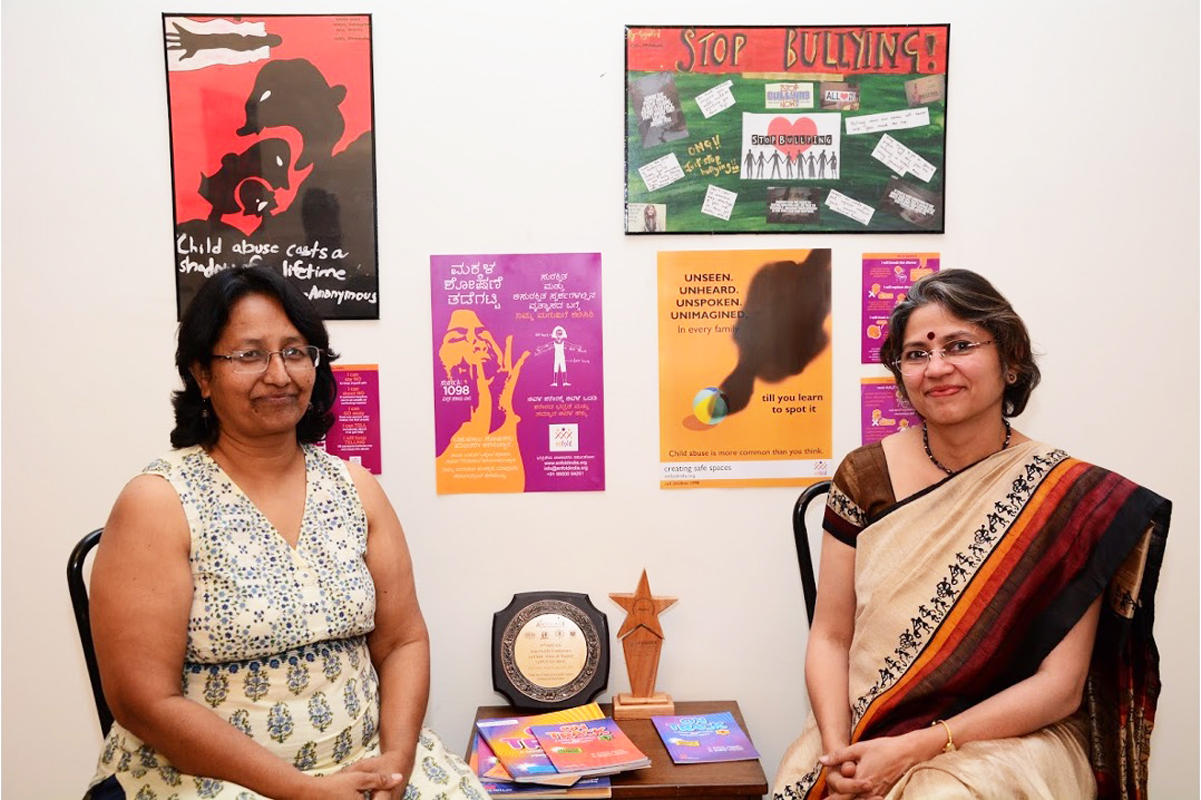
Rastreando as causas raiz da violência de gênero e abuso sexual até a falta de respeito pelas crianças e educação sexual quase inexistente, os dois médicos decidiram que, para manter as crianças seguras, eles precisariam incluir crianças, bem como seus pais, cuidadores e professores. Eles foram às escolas e salas de aula, conduzindo sessões sobre segurança pessoal e sexualidade para crianças, juntamente com sessões para adultos interessados. As sessões se concentraram em respeitar seu próprio corpo e os corpos dos outros, administrar sentimentos e promover comportamento seguro.
Ao conduzir o treinamento na escola, os médicos ficaram cientes da extensão total do abuso sexual entre crianças. Isso levantou questões importantes: por que as crianças não estavam contando aos pais sobre o abuso e por que os pais não estavam tomando medidas? A resposta, eles descobriram, estava em uma lacuna de conhecimento entre adultos e jovens. Isso levou ao desenvolvimento do currículo da Enfold – uma série de livros sobre tópicos como segurança em espaços públicos e privados, normas de tocar em roupas e falar e pessoas “seguras”. Este currículo, que começa na 1ª série, foi o primeiro desse tipo na Índia.
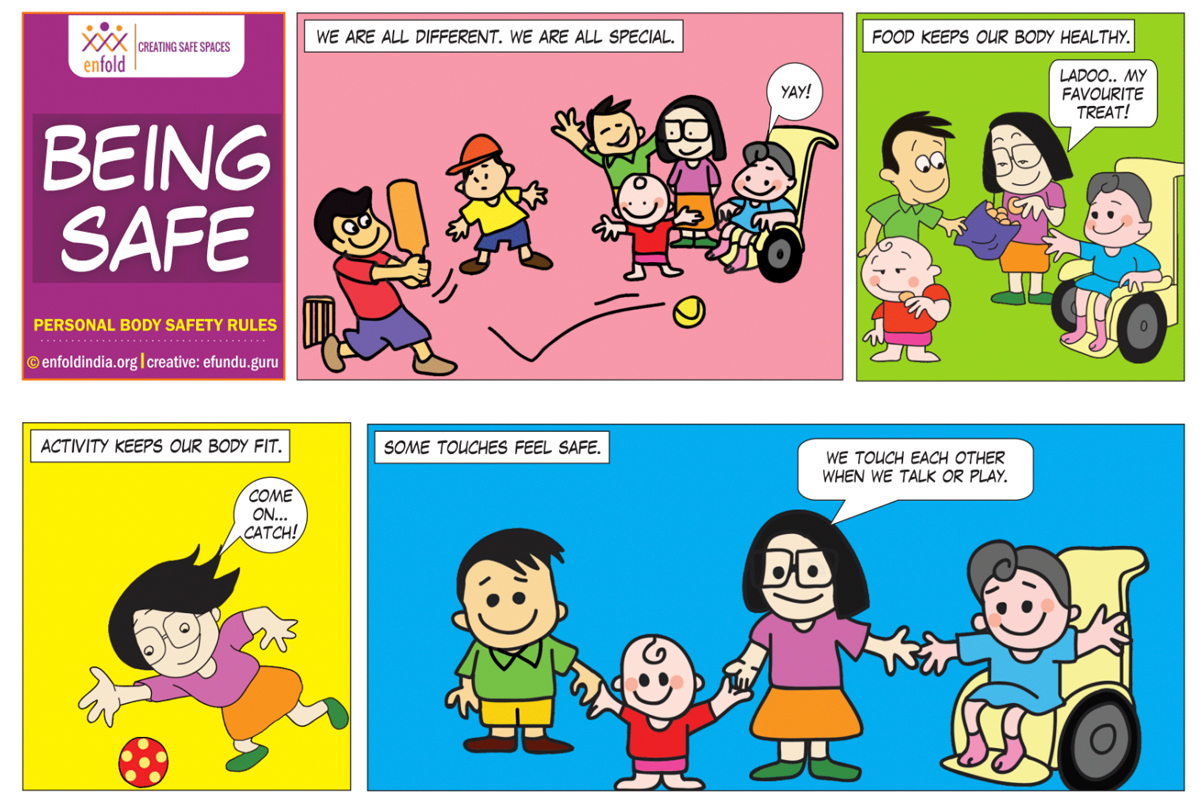
A partir daí, a Enfold continuou quebrando barreiras, com uma equipe maior levando seu trabalho para todo o país. A organização agora conduz sessões para adultos interessados — pais, polícia, equipe médica, assistentes sociais e a mídia — sobre prevenção e resposta à violência sexual. A equipe também trabalha com o governo e outros grupos sobre igualdade de gênero e criação de sistemas e processos favoráveis às crianças. Além disso, a Enfold administra um serviço de apoio à reabilitação para crianças vítimas de abuso sexual, fornecendo a elas apoio médico-legal e psicossocial. A equipe de práticas restaurativas da Enfold treina funcionários de instituições de assistência à infância, professores, conselheiros e assistentes sociais na construção de uma cultura restaurativa e no enfrentamento de conflitos por meio de práticas restaurativas. Sua equipe de pesquisa trabalha em questões de proteção à criança para promover os direitos das crianças e a implementação de leis.
Apesar da natureza do trabalho deles, “não enfrentamos muita reação negativa”, disse Sangeeta. “Acreditamos que é porque não nos desviamos dos nossos valores culturais e ensinamos respeito em todos os níveis. Assim como as crianças precisam respeitar os adultos, os adultos precisam respeitar as crianças.”
Em 2016, a Enfold começou a enfatizar o apoio a crianças com deficiências intelectuais e sensoriais, uma vez que estudos descobriram que o risco de abuso sexual entre essas crianças é três vezes maior do que entre crianças sem deficiências. A Enfold desenvolveu um kit contendo livros ilustrados, jogos, fantoches e gráficos para permitir que pais, professores e cuidadores ajudem crianças com deficiências intelectuais e sensoriais a aprender sobre saúde reprodutiva, sexualidade e segurança pessoal. O kit inclui orientação sobre como ajudar crianças a reconhecer e denunciar abuso sexual.
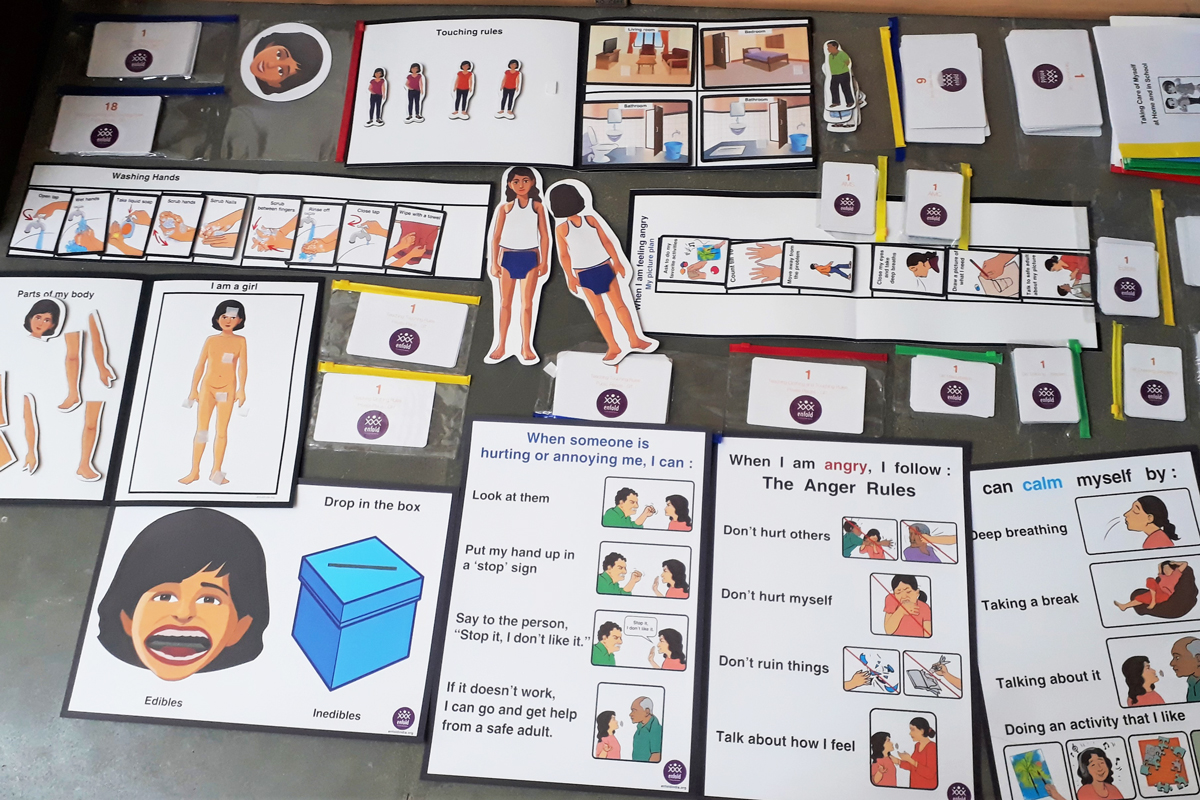
Desde sua fundação em 2001, a Enfold alcançou mais de 200.000 crianças e jovens em mais de 890 escolas; quase 60.000 pais, professores e equipe de apoio; e um grande número de funcionários do serviço público. O trabalho da organização progrediu ano após ano, com a Desmistificando a Educação Sexual livros de referência e manuais introduzidos para cuidadores, mais pesquisas científicas realizadas para fortalecer o currículo e aplicativos móveis lançados para fornecer melhor orientação às crianças.
Entre as partes mais gratificantes do trabalho da equipe estão quando crianças que participaram de sessões de segurança pessoal ganham coragem para denunciar abusos e buscar ajuda, e quando adultos que participaram das sessões quando crianças compartilham como Enfold mudou suas vidas.
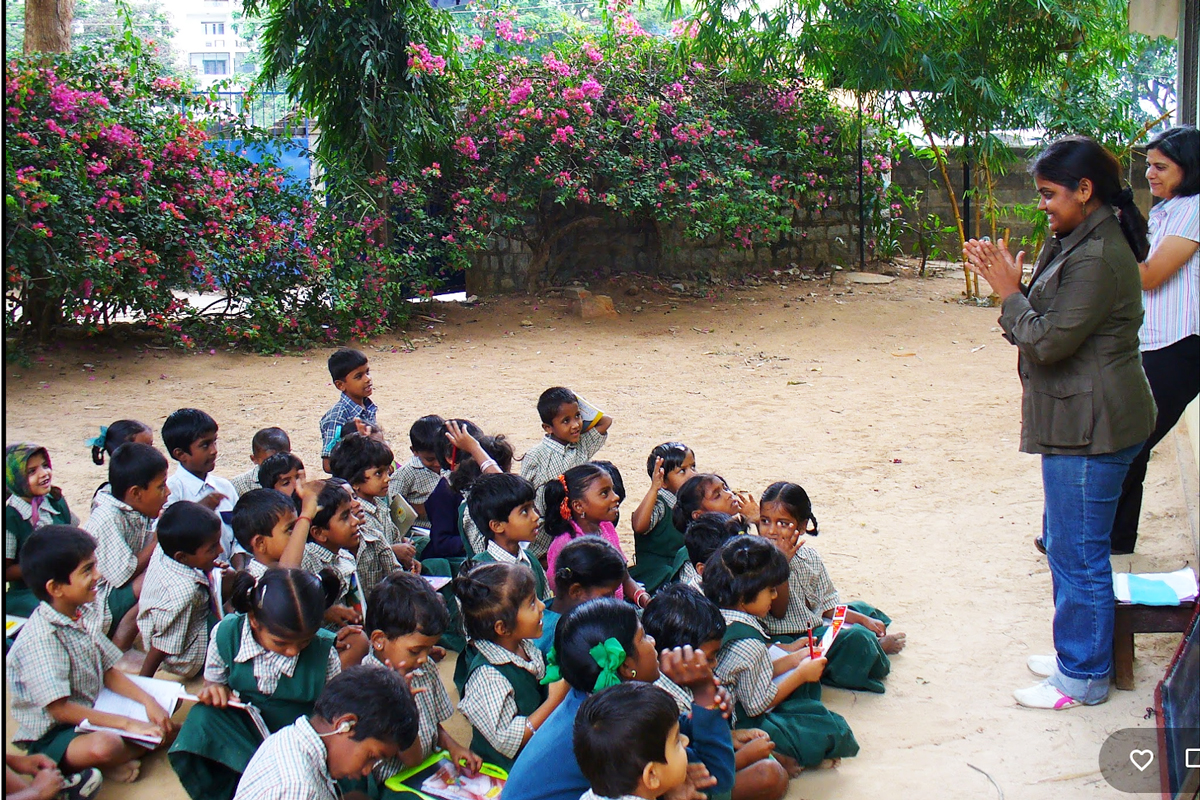
O cuidado de Sangeeta com as crianças é evidente. “Não suporto ver crianças machucadas”, ela disse. Junto com seu cofundador e equipe, ela tem muitos planos para a Enfold, à medida que avança com seu trabalho transformador na Índia, construindo um futuro onde todas as crianças, independentemente de gênero, idade, deficiência ou ambiente social, possam exercer seus direitos e viver com dignidade.
A Enfold India faz parte da Iniciativa Aumentando Oportunidades para Crianças com Deficiência, que é uma parceria entre a Fundação Dorothea Haus Ross e crise financeira global.
Foto do cabeçalho: Uma sessão de treinamento conduzida por Renu Singh da Enfold para estudantes universitários na Índia. © Enfold India
